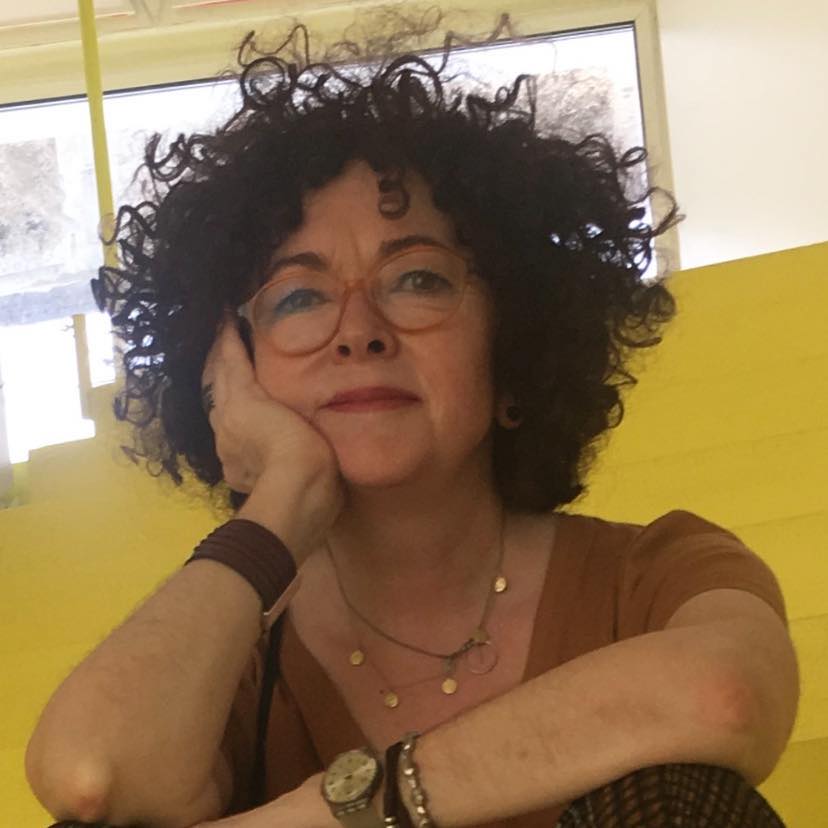| CANAL CES |
| PODCAST |
| TEMAS |
| PESSOAS |
|
Interview by: Rita Santos and Ana Cristina Pereira Este podcast faz parte da série de 28 podcasts realizados sobre o caso português e italiano no âmbito do projeto de investigação de 36 meses (2018-2021) (De)Othering: Desconstruindo o Risco e a Alteridade: guiões hegemónicos e contra-narrativas sobre migrantes/refugiados e “Outros internos” nas paisagens mediáticas em Portugal e na Europa, que pretendeu analisar criticamente representações mediáticas de migrantes, refugiados e “outros internos” em Portugal e na Europa, mapeando as suas interconexões com narrativas produzidas no domínio da segurança e no quadro da Guerra ao Terrorismo. O seu foco, uma análise de Portugal à luz de estudos de caso europeus profundamente afetados por ameaças terroristas (Reino Unido e França) e por fluxos migratórios/de refugiados (Itália e Alemanha), pretende investigar a construção de narrativas transnacionais de risco que permeiam a Europa independentemente da sua exposição “diferenciada”. O projeto foi financiado pelo pelo FEDER – Fundo Europeu de Desenvolvimento Regional através do COMPETE 2020 – Programa Operacional Competitividade e Internacionalização (POCI) e por fundos nacionais através da FCT – Fundação para a Ciência e a Tecnologia (Referencia Projeto: POCI-01-0145-FEDER-029997) ----- English Version This podcast is part of a series of 28 podcasts produced on the Portuguese and the Italian cases as outputs of the research undertaken in the 36 months project (2018-2021) (De)Othering: Deconstructing Risk and Otherness: hegemonic scripts and counter-narratives on migrants/refugees and ‘internal Others’ in Portuguese and European mediascapes that sets out to critically examine media representations on migrants, refugees and ‘internal Others’ in Portugal and across Europe while mapping out their interconnections with particular narratives in the field of security and within the War on Terror. Its focus – an analysis of Portugal in the light of other European cases affected by terrorist threats (United Kingdom and France) and by migrant/refugee flows (Italy and Germany) – aims to explore the construction of transnational narratives of risk pervading Europe regardless of the ‘differential’ exposure to them. The project was funded by FEDER – European Regional Development Fund through the COMPETE 2020 – Operational Programme for Competitiveness and Internationalisation (POCI), and by Portuguese funds through FCT in the framework of the project 029997 (Reference: POCI-01-0145-FEDER-029997).
However, in her perspective, the main problem and greatest challenge is the Portuguese institutional culture. Portuguese associations are not usually activists and act in a much more charitable way, not making so many political demands, but helping refugees with food and clothing donations. That is, they help in a very palliative way. At the institutional level, there is a divergence between political discourse and practical actions. For example, one of the great challenges is the Portuguese language. In the speech of the High Commissioner of the United Nations and within the Secretariat for Migration in Portugal, there is a discourse about encouraging and increasing resources for this purpose. But, for example, there are few centers specialized in teaching Portuguese to migrants which shows some of the practical loopholes of refugee integration in the country. In addition, Portuguese institutions maintain a bureaucratic and hierarchical culture, which should supposedly dialogue more with other organizations in charge of managing and working with migrants and refugees, seeking to create exchange of information and strategies, such as SEF, centers of social assistance, etc. But she emphasizes how there is no such space. The reports produced and shared aim to get more funding and only contain numerical data, such as numbers of refugees received and available housing, but rarely deal with issues related to the living conditions that these people are subjected to. In Cristina's view, this greater dialogue between institutions and a more holistic and comprehensive view of their role is fundamental to changing the conditions of refugees and migrants in the country.
pessoas
ligações
|





 Cristina Santinho is an anthropologist and scholar. Her research is centered on migration and integration of refugees in Portugal, focusing not only on asylum seekers and refugees, but also on institutions dealing with the issue. In this episode, she starts the conversation by talking about how migrants are subordinated and despised in host countries, often invalidating the professional formation that they already have and the work they used to do in their country of origin, leaving them at the mercy of precarious work. Cristina highlights how the media paid more attention to the refugee crisis when it was the Syrians who were arriving, white-passing people phenotypically closer to Europeans than Africans.
Cristina Santinho is an anthropologist and scholar. Her research is centered on migration and integration of refugees in Portugal, focusing not only on asylum seekers and refugees, but also on institutions dealing with the issue. In this episode, she starts the conversation by talking about how migrants are subordinated and despised in host countries, often invalidating the professional formation that they already have and the work they used to do in their country of origin, leaving them at the mercy of precarious work. Cristina highlights how the media paid more attention to the refugee crisis when it was the Syrians who were arriving, white-passing people phenotypically closer to Europeans than Africans.